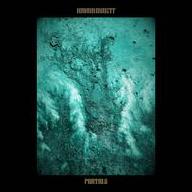Born in San Francisco and raised in El Sobrante, Kirk Hammett's early passion for horror movies eventually led him to heavy metal. By 16, he was at the forefront of the fledgling Bay Area thrash scene with his band Exodus and appeared on the group's 1982 demo. The following year, Hammett received a phone call from Metallica (singer/guitarist James Hetfield, drummer Lars Ulrich, and bassist Cliff Burton), who were on the cusp of firing their original guitarist, Dave Mustaine, asking if he'd be interested in trying out for the band. The group arranged for Hammett to fly out to their new home base of New York, where he passed the test after a single run-through of their early classic anthem "Seek & Destroy," with Burton comparing Hammett's playing to such Euro-metal guitarists as Michael Schenker and Ritchie Blackmore -- two of the band's favorite six-stringers. The new lineup quickly began work on their debut album, Kill 'Em All, issued the same year. Since Hammett had joined just a short while earlier, he didn't have a chance to put his stamp on the material, opting instead to stick to the riffs and approach that Mustaine had already laid down. This would change on Metallica's subsequent two releases, 1984's Ride the Lightning and 1986's Master of Puppets, as Hammett developed his style on what many consider among metal's all-time great albums.
Metallica was fast becoming one of the genre's premier bands, but Burton's tragic death mid-tour in September of 1986 almost ended the group. With former Flotsam Jetsam bassist Jason Newsted taking Burton's place, Metallica soldiered on, issuing two mega-hit albums, 1988's And Justice for All and 1991's platinum-selling self-titled release, and establishing themselves as one of hard rock's biggest acts. Further sold-out tours and hit releases continued throughout the '90s -- 1996's Load, 1997's Reload, and 1999's SM -- as the group reinvented their former image from long-haired metallers to snappily dressed, short-haired rockers. Throughout the 2000s and onward, Hammett's guitar playing shifted focus from his early metal roots to a more earthy (almost bluesy) Jimi Hendrix style, as his own "signature series" line of six-strings were manufactured through the ESP guitar company.
In 2022, Hammett parlayed his lifetime affinity for horror movies into a sinister and cinematic debut solo outing. The all-instrumental Portals included contributions from drummers Jon Theodore and Abraham Laboriel, bassist Greg Fidelman, Metallica producer Bob Rock, award-winning arranger Blake Neely, and conductor/keyboardist Edwin Outwater. ~ Greg Prato & James Christopher Monger, Rovi


















